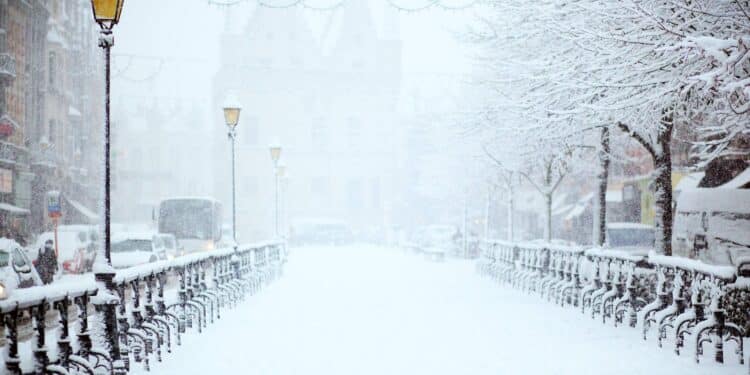Cold weather is especially challenging to endure without a functional heater if your power goes out during the winter. No time is to be wasted when a winter storm is predicted. If the winter snowfall this year takes a turn for the worse, you’ll be ready for it since you started planning for it now. You don’t realize how much you rely on your power and heat systems until they’re suddenly cut off. Knowing what to do in the event of a power loss during the winter months is important before a storm knocks out your electricity. To prevent such an event, you can follow the tips mentioned in this article.
1. Keep stock of batteries
You should keep a few other lighting choices available in case the power goes out during the winter storm. You can use candles or flashlights, although the latter is a wise move. Check to see whether your flashlights are functioning properly; if they aren’t, replace them and make sure you have enough batteries.
Moreover, ensure you have a supply of extra batteries for your smoke alarm, radio, and other electronic devices that may need them.
2. Check your flashlight
How many flashlights in your junk drawer have you clicked before discovering one that works? Test your flashlights, even with new batteries, before a power loss. Discard non-working flashlights and replace their batteries. If needed, buy more flashlights, so each family member has a “decent” light. Flashlights are safer than candles.
3. Store sufficient heating fuel
Create a winter power outage strategy to remain warm. Even gas furnaces need the energy to drive their fans. If you don’t have one, add a battery backup for your gas fireplace starter. Firewood is essential for wood stove users. Use only indoor propane heaters since carbon monoxide may build up and kill.
Also, you may visit this Weather API to learn about the current weather conditions, historical data, or any other information related to the weather. Get reliable and timely weather data with the Weather API.
4. Keep stock of water
If you’re connected to the city’s water system, you won’t have to worry about a power loss affecting your water pressure or delivery. However, those who use a well for their water supply are out of luck since, without power, the good pump won’t operate. Ensure you have extra drinking water and fill the bathtub and washing machine before the rain hits so you can keep the toilets clean and flush.
5. Invest in a good quality generator
Consider purchasing a generator if you live in an area that often has power outages during storms. Standby generators and portable generators are the two main varieties.
A standby generator may be connected permanently to your home’s electrical system, providing backup power for everything or just the essentials.
Portable ones are more cost-effective and may be taken anywhere. You will have power for necessities like the refrigerator and the furnace.
Generators need natural gas or propane, so store that before you need it.
6. Stock up your pantry
Long-term power outages may limit your food supply, particularly fresh food. Your refrigerator determines its lifespan (which, in most cases, is up to 48 hours). Save nonperishables because power recovery might take days. Buy canned food, nuts, granolas, cereals, crackers, juices, powdered milk, and instant coffee. Store water bottles because electric motors may freeze tap water.
7. Consider protecting your pipes
Winter freezes and bursts home pipes. This is difficult, damaging, and expensive.
Insulating pipes during a power outage prevents freezing. In cold conditions, if a pipe bursts, water will flood your home. Turning off the main value prevents this.
Turning on the faucets avoids freezing if you can’t turn off the valve. Collect dripping water in a bucket to reuse.
Once electricity is restored, certain heat pumps include pipe freeze prevention. This setting keeps the temperature above freezing by continually blowing hot air.
Conclusion
When the power goes out in the winter, being prepared is the most important thing you can do to protect yourself and maintain your comfort. Extra supplies of food, water, and other essentials may be greatly beneficial. While the absence of heat poses the greatest risk during a blackout, taking precautions to prevent cold droughts from entering your house and clothing in layers will help you remain warm and safe from the effects of severe weather.












